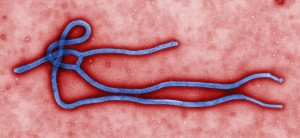Georgia public health officials are assembling a tiered system among the state’s hospitals for identifying and treating Ebola patients.
And they hope to have it in place this month, with the hospitals publicly identified as treatment facilities in the state.
The plan was outlined by Dr. Patrick O’Neal, director of health protection for the Georgia Department of Public Health, at the agency’s board meeting Tuesday.
“Georgia has done an outstanding job in preparation for Ebola,’’ said O’Neal, who credited leadership by Dr. Brenda Fitzgerald, the agency’s commissioner.
“We’ve led much of the country,’’ he said. “Our hospitals and health care providers have stepped up.’’
O’Neal said he hoped that the Ebola hospital system would work in the future for any infectious disease outbreak.
Hospitals designated as Tier 3 hospitals, he said, would be able to identify and isolate a potential Ebola patient.
Tier 2 hospitals would have the capacity to isolate a patient for 72 hours, while the Tier 1 hospitals would do treatment, O’Neal said.
O’Neal said he envisions up to seven Georgia hospitals in Tier 1, and 15 to 20 in Tier 2, geographically dispersed throughout the state.
Emory University Hospital has already successfully treated four patients with Ebola, and has been the lone Georgia facility identified as an Ebola treatment center.
But O’Neal said, “Emory would not be able to handle more than two or three [Ebola patients] at a time.”
Georgia public health officials have so far not identified the hospitals that are preparing to install specialized Ebola treatment units.
Hospital administrators have asked that their participation not be disclosed until their facilities are fully prepared to treat patients showing symptoms of the disease, a Georgia Department of Public Health spokesman said recently.
The CDC has asked all states to have additional Ebola facilities identified this month, O’Neal said.
“All the hospitals have been doing exercises,’’ O’Neal said.
But he said a major obstacle in the training effort is a lack of the special gear recommended for health care workers in dealing with Ebola patients.
The personal protective equipment has been back-ordered for weeks, he said.
In addition, EMS providers have showed a willingness to be trained to transport Ebola patients that O’Neal called “absolutely stunning.”
Public health epidemiologist Cherie Drenzek said earlier at the board meeting that 327 travelers from West Africa have been monitored by the Georgia agency. Currently, 96 travelers are being monitored, including 50 CDC employees.
So far, no one screened under this program has been found to have the Ebola virus.
Drenzek said the monitored travelers have shown “very good compliance’’ with the agency’s requirement of having their temperature taken and symptoms checked daily.


